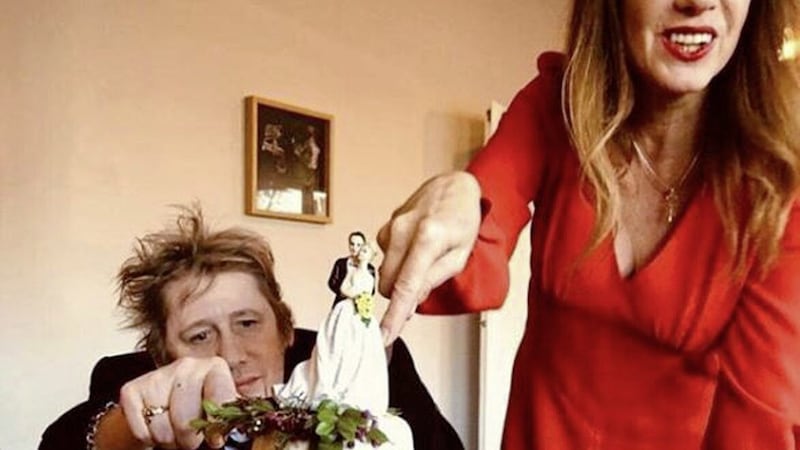The Life and Living Lady, RTE Radio 1
The Spark, Radio 4
They called her The Death and Dying Lady.
My mother had a copy of On Death and Dying by Elisabeth Kübler-Ross that I flicked through when I was a student. But death seemed a long way off in those days.
In her book, the renowned Swiss psychiatrist outlines the five stages of grief – denial, anger, bargaining, depression and acceptance.
But her friends knew her as the “life and living lady” because she had a love for life and a desire to help people with the harsh realities of life.
It’s how she ended up in Ireland, where her message resonated with people during the Troubles and she came to talk to people here and found herself at a particular spot in the Cooley Peninsula in Co Louth, where she bought a cottage.
And that is where this documentary maker, Chris Nikkell, comes in.
He bought an old stone cottage on the Cooley Peninsula… and found out that it had once been owned by Ross. That set him off on a journey to talk to those who knew her – about her energy and passion for life and helping people and about her love of Ireland.
When she was about five years old, Ross became very ill and ended up in hospital. There was a girl in the next bed. One night, that girl whispered to her, “Tomorrow I’m going to be with the angels. But you will be all right, you’ll pull through.”
When she awoke, the girl in the next bed was gone and nobody wanted to talk about what happened to her.
That planted a seed in the young Ross’s head that grew and transformed her life.
When she married and went to live in America, she was horrified by how nobody spoke about death or spoke to people who were terminally ill.
She started to talk to dying patients to learn how they were feeling and what it means to go through that process.
This was an interesting documentary about an inspirational woman.
In similar vein, twist the channel, or push the button on your radio and The Spark on Radio 4 featured an interview with neurosurgeon and writer Henry Marsh about his own diagnosis with advanced prostate cancer and how it had informed his ideas about how we deal with terminal illness.
Presenter Helen Lewis is no pushover, she puts the opposite point of view in no uncertain terms, but Marsh is an intelligent man who now finds himself on the other side of the doctor-patient relationship.
Doctors are taught to keep a professional distance and neurosurgery has brought him face to face with death very often... but it’s quite different when it’s your own, he pointed out.
And even with good palliative care, some deaths are not easy or pleasant.
Take Freud, who had to face cancer – even his dog wouldn’t go into the room with him for the last month because of the smell, he said.
As someone who has seen so much death, he knows what he is talking about.
Death from cancer can be a horrible affair but the current law insists that people like him must suffer, he said.
Marsh is a keen advocate for the Canadian model of assisted dying. His was a persuasive argument on the choice of a dignified death.


